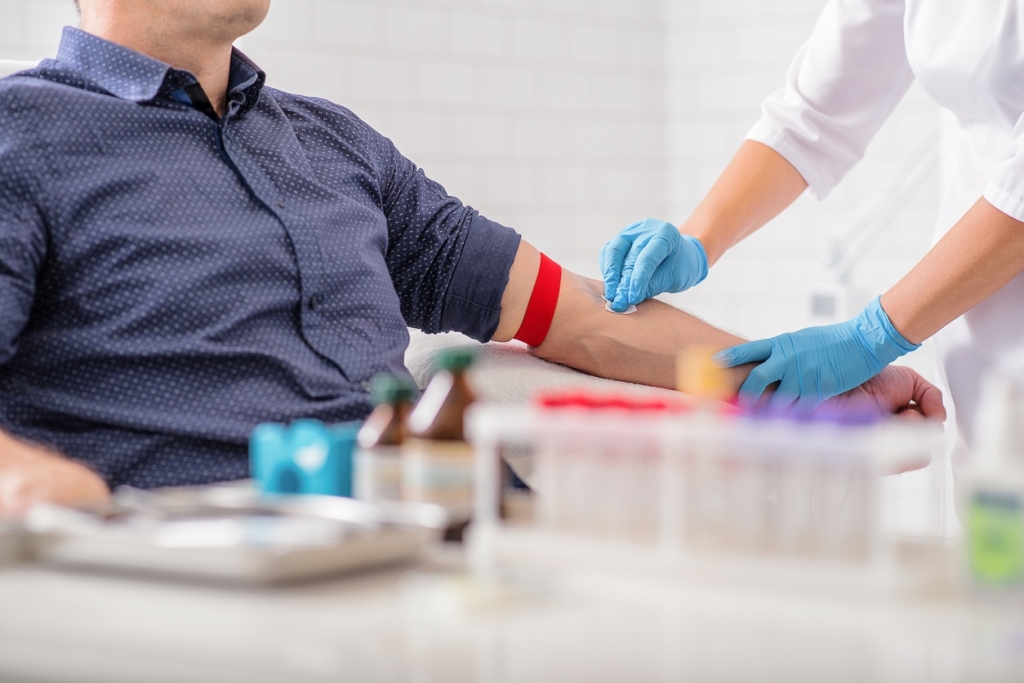Essential Phlebotomy Job Requirements: Your Guide to a Accomplished Career in Blood Collection
Embarking on a career as a phlebotomist can be both rewarding and challenging.As a vital member of the healthcare team,phlebotomists specialize in blood collection,playing a crucial role in patient care and diagnostic processes. In this article, we’ll explore essential phlebotomy job requirements and provide practical tips to ensure your success in this growing field.
Understanding the Role of a Phlebotomist
A phlebotomist is trained specifically to draw blood from patients for various purposes, including diagnostic testing, blood donations, and research. Their responsibilities include:
- Preparing patients for blood draws, explaining the procedures, and alleviating concerns.
- Selecting appropriate veins or arteries for blood collection.
- Maintaining sterile techniques to ensure patient safety.
- Labeling samples accurately and ensuring their secure transport to laboratories.
- Maintaining records of procedures and patient interactions.
Essential Phlebotomy Job Requirements
1. Educational Qualifications
To begin a career in phlebotomy, candidates typically need at least a high school diploma or GED. Many phlebotomy programs offer vocational training, focusing on blood collection techniques and patient care. Completing a phlebotomy training program can give you a solid foundation.
2. Certification
While certification is not always mandatory, obtaining one can significantly boost your job prospects. Several organizations offer certification for phlebotomists, including:
- National Phlebotomy association (NPA)
- american Society for Clinical Pathology (ASCP)
- national Centre for Competency Testing (NCCT)
Having a recognized certification demonstrates your competence and professionalism in the field.
3. clinical Experience
Hands-on experience is crucial. Most phlebotomy training programs include externships, allowing you to practice blood collection under supervision. Look for programs that offer a robust clinical component, as this experience is invaluable.
4. Knowledge of Medical Terminology and Procedures
A solid understanding of medical terminology, anatomy, and physiology can enhance your effectiveness as a phlebotomist. Familiarize yourself with:
- Different blood types
- Common blood tests and their purposes
- Basic human anatomy, especially circulatory and vascular systems
5. Interpersonal Skills
Being a phlebotomist requires excellent interaction skills and empathy. you will work with patients from diverse backgrounds, and your ability to reassure them can make the blood collection process smoother. Key interpersonal skills include:
- Patience and understanding
- Active listening
- Professional demeanor under pressure
6. Attention to Detail
Accuracy is crucial in phlebotomy. Poor labeling or contamination of samples can lead to misdiagnosis. Phlebotomists must be detail-oriented, ensuring that each aspect of the blood collection process is executed flawlessly.
Benefits of being a Phlebotomist
A career in phlebotomy offers numerous advantages:
- Job Security: As the healthcare industry continues to grow, skilled phlebotomists are in high demand.
- flexible Work Environment: Phlebotomists can work in hospitals, clinics, laboratories, and even mobile diagnostic units.
- Meaningful Impact: You directly contribute to patient care and health outcomes.
- Potential for Advancement: With additional training, phlebotomists can pursue roles such as laboratory technologists or healthcare supervisors.
Practical Tips for Aspiring Phlebotomists
- Consider enrolling in an accredited phlebotomy training program.
- Seek out internships or volunteer opportunities to gain hands-on experience.
- Network with professionals in the field through workshops and conferences.
- Stay updated on the latest practices and technology in blood collection.
- Develop your soft skills alongside technical skills – both are equally crucial for your success.
Case Studies: Success Stories in Phlebotomy
Many successful phlebotomists started with minimal experience and built their careers over time. Here are a few anecdotes:
| Name | Background | Current Position |
|---|---|---|
| Jane Doe | Started in a community health clinic post-certification | Lead Phlebotomist at XYZ Medical Center |
| John Smith | Transitioned from nursing assistant to phlebotomist | Phlebotomy Trainer at ABC Institute |
First-Hand experience: A Day in the Life of a Phlebotomist
Meet Sarah, a phlebotomist with over five years of experience. Each day for Sarah begins with reviewing her patient list and gathering all necessary supplies. Her day might include:
- Collecting blood samples from patients in various departments.
- Interacting with patients to explain the procedures, making them feel at ease.
- Collaborating with nurses and physicians to ensure timely testing.
- Maintaining cleanliness and following protocols strictly.
According to Sarah, the most rewarding part of her job is the opportunity to make a difference in patient health. She emphasizes the need for both technical skills and empathy in the role.
Conclusion
If you’re considering a career in phlebotomy, understanding the essential job requirements is the first step towards success.With the right education, certification, and interpersonal skills, you can thrive as a phlebotomist. Embrace the challenges and rewards this career offers,and you’ll find yourself making meaningful contributions to the healthcare field.
